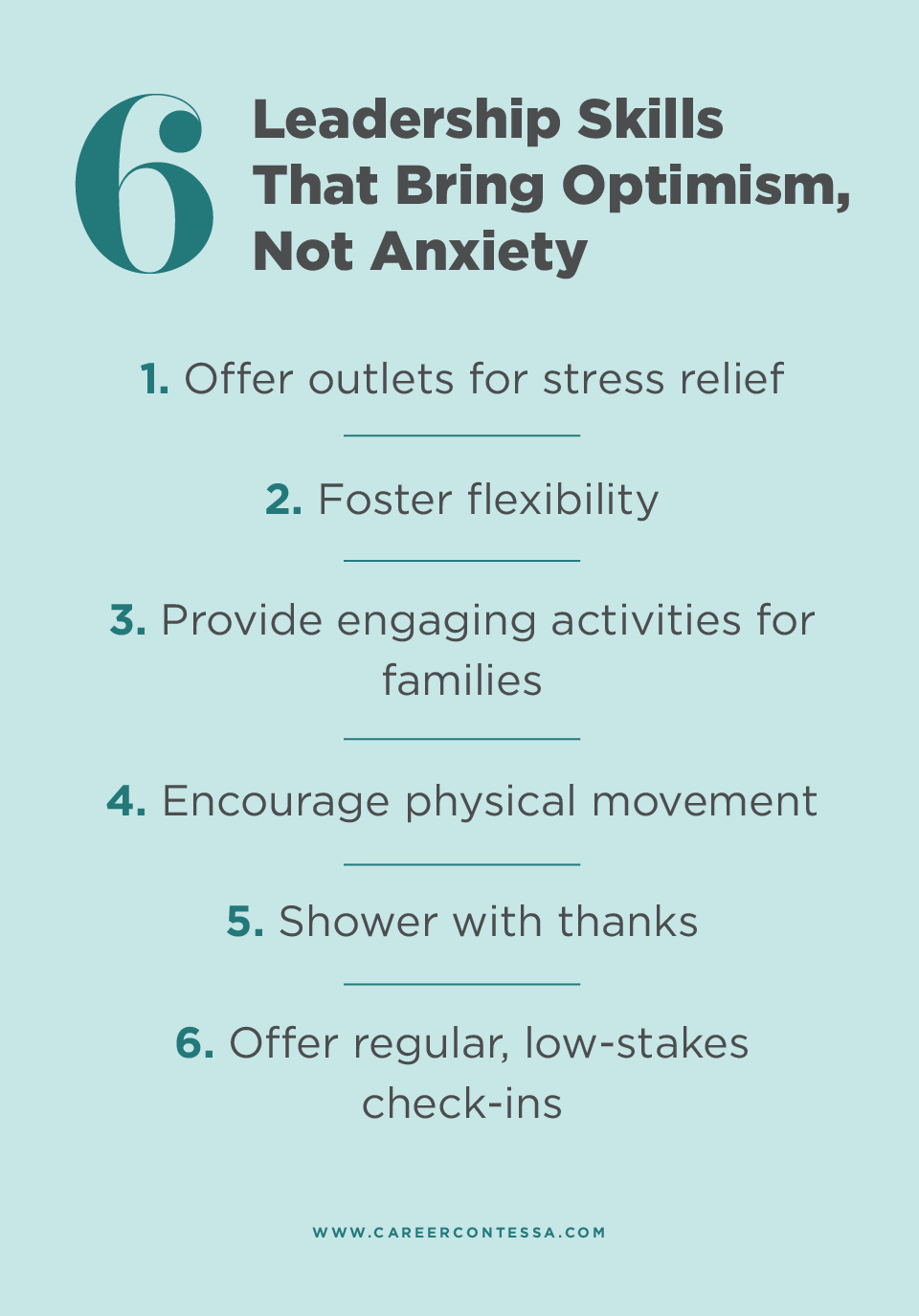One of the most important skills to have as a leader is the ability to empathize.
It's no news that emotional intelligence is more important than ever—especially in today's workplace. In fact,
receiving empathy has a physiological effect—it causes our brains to produce oxytocin which helps negate stress.
Leaders who simply regard their employees' emotions will see reduced turnover, better performers, higher engagement, increased employee satisfaction, and a more harmonious workplace altogether. All of this helps the bottom line, too. Sounds pretty good, no?
76% of people who experience empathy from their leaders report feeling engaged at work. Comparatively, only 32% who experience less empathetic leadership feel engaged in their workplace, according to
research.
It’s important, of course, to show empathetic leadership skills through conversations with your employees, but below are a few simple ways
you can show your team that you care and help them weather any storm.
Offer Outlets For Stress Relief
Provide your team with the time and tools needed to
relieve stress. This might look like a regular yoga outing, a subscription to a meditation app, or a group-wide breathing practice before conference calls. Make them feel cared for by encouraging them to keep their mental health a top priority.
Beyond offering outlets for stress relief within the office, ensure that your employees feel comfortable taking their sick days, mental health days, and paid time off to disconnect and recharge.
Stress and anxiety are slick pathways leading straight to
work burnout. Empathetic leaders will go the extra mile to ensure that their employees take advantage of stress relief to avoid burnout caused by overwork.
Foster Flexibility
If possible, allow your employees to practice autonomy regarding working hours. Yes, this means letting go of away messages, hourly- check-ins, and general
micromanager behaviors.
If you are working remotely, whether unexpectedly or as part of your normal routine, allow your employees to work during the hours that are most convenient for them as much as possible.
Of course, calls and meetings have to be scheduled, but trust your employees to organize their schedules and their personal lives in the way that works best for them.
Provide Support For Families
If your
employees are at home and working to provide for their families, offer support. The lack of empathy given to working parents, especially to working women, is a leading cause for decreased participation in the workplace.
According to the U.S. Bureau of Labor Statistics, 69.1 percent of families with children under the age of 18 had a working mother. By 2020, that percentage dropped to 65.9 percent, when many working mothers were forced to return home to provide full-time childcare.
What does support look like for parents? Well, where do we begin? For starters, empathetic leaders know that flexible scheduling is crucial to help fill in challenges faced by a working parent—including sick children, childcare gaps, doctor appointments, and, yes, the occasional dance recital or soccer game.
Encourage Physical Movement
Provide access to virtual exercise classes or create an incentivized program that prioritizes physical well-being. This might look like a team challenge to walk a certain amount each week or a monetary reward for logging exercise time.
For remote teams, this can translate to having "walking 1:1s" with your team members, where you take your meeting anywhere but your desks—and discuss things other than job performance or work obligations. Use at least a portion of these meetings to connect on a personal level.
Shower With Thanks
There is no such thing as too much gratitude.
Unexpected tokens of thanks go far. Consider sending your team virtual gift cards for a coffee or lunch. Mail them a thank you note that shows you value their hard work.
Gratitude does not necessarily need to be tied to gifts or financial gain, either. If money is an issue, a quick but heartfelt email of thanks can be just as meaningful. Even a meaningful pat on the back or kudos for a job well done can do wonders to boost team morale. Never underestimate the importance of acknowledgment.
Offer Regular, Low-Stakes Check-Ins
The best way to gauge the morale of your team is by keeping in touch. Those practicing an empathetic leadership style should show genuine interest in their employees—and an engagement in their lives in and out of the workplace.
This doesn't mean that empathetic leaders need to know every detail about every team member's personal life, Rather, it's creating a more casual space for regular feedback and check-ins.
Keep in close communication with your employees without making it feel like a high-bar conversation. Avoid adding pressure, and make sure that their workloads feel manageable. Offer a listening ear or help find solutions to the stressors that they’re experiencing.










